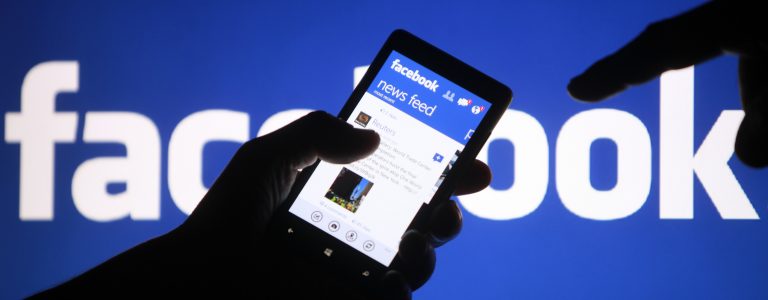No algorithm makes Facebook-WhatsApp deal compute

A smartphone user shows the Facebook application on his phone in the central Bosnian town of Zenica, in this photo illustration, May 2, 2013.
No algorithm based on terrestrial mathematics can make Facebook’s WhatsApp deal compute. Mark Zuckerberg’s social network is committing to spend $19 billion for the 55-employee, 450 million-user, ad-free messaging service. Facebook says growth is the point, not making money. That’s the kind of magical thinking shareholders signed up for when they surrendered control to the founder.
Facebook says the valuation was justified by the ruddy health of the network WhatsApp has created. The company is adding 1 million new users daily. On that basis, Facebook is paying around $40 for each of them. Using that arithmetic from another planet, the deal compares favorably to the $3,000 or so that Comcast is paying for Time Warner Cable customers, who pay something like $80 a month for its services.
But size is what matters in the Zuckerberg view of the world. And WhatsApp, whose co-founder in fine Silicon Valley fashion is the child of immigrants, is on its way to 1 billion users. Networks that large are inherently valuable. Twitter and LinkedIn are both worth more than $20 billion. China’s Tencent is worth about $140 billion. And Facebook is worth $173 billion. These valuations are predicated on extraordinary growth. Facebook, for example, trades at more than 50 times estimated 2014 earnings.
Zuckerberg is similarly taking a long-term view on WhatsApp’s profitability. And with his control of the company indisputable, notwithstanding the dilution this deal will inflict upon shareholders, it’s his prerogative. Facebook thinks the acquisition will pay off over the next decade. That’s a long-time for any company built upon social trends.
But ten years is the age that Facebook itself now faces. And it is not aging with obvious grace. Deals escalating in size, and seeming desperation, since the $1 billion gulp of Instragram are a worrying signal that Facebook is looking in the rear window, playing defense, rather than innovating in its own right.
Context News
Facebook said on Feb. 19 it had reached an agreement to buy mobile messaging service WhatsApp for up to $19 billion in cash and stock. The social network led by Mark Zuckerberg is paying $4 billion in cash, about $12 billion in Facebook shares and $3 billion in restricted stock units to be granted to WhatsApp’s founders and employees that will vest over four years. WhatsApp, founded in 2009, says it has over 450 million people using its service each month, 70 percent of whom are active on any given day. Facebook shares fell as much as 5 percent in after-hours trading following the news.
Regions:
Related Articles:
Snapchat bid triples Facebook's desperationFacebook has another mobile call to answerRakuten’s buying spree getting harder to justifyWhatsApp’s Chinese copycat deserves its premiumHow on earth can Facebook justify WhatsApp price?Zuckerberg grabs at alternate financial reality
Most Popular
Fake chocolate is a sweeter bet than plant burgers King Dollar’s long reign is set to continue Carmakers’ US dreams turn to nightmare dilemma Donald Trump’s boomerang will hit the US hard ECB bank snub is good for Orcel, bad for M&A bullsRecent Articles
GameStop completes meme-stock evolutionUbisoft debt fix leaves valuation quest on pauseEU defence fiscal holiday will backfireCoreWeave scripts AI’s Tinker Bell momentBasic rules of banking apply to Klarna tooThomson Reuters Products
Build the strongest argument relying on authoritative content, attorney-editor expertise, and industry defining technology.
The most comprehensive solution to manage all your complex and ever-expanding tax and compliance needs.
The industry leader for online information for tax, accounting and finance professionals.
LSEG Products
Access unmatched financial data, news and content in a highly-customised workflow experience on desktop, web and mobile.
Browse an unrivalled portfolio of real-time and historical market data and insights from worldwide sources and experts.
Screen for heightened risk individual and entities globally to help uncover hidden risks in business relationships and human networks.
© Reuters News & Media Ltd 2025. All rights reserved.
This website uses cookies to ensure you get the best experience on our website. Learn more

